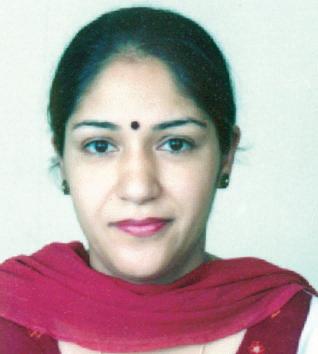
3 minute read
Facts on fasting
from 2010-10 Melbourne
by Indian Link
Fasting is a healthy practice, but take care not to celebrate its end through overindulgent feasting
BY GEETA KHURANA

With Ramadan and Eid just over, and Navratras and Karva Chauth just around the corner, the fasting season is here. Fasting as a ritual goes back to many thousands of years, as a healing and as a religious or spiritual process. Fasting basically means voluntary abstinence from food. Many religions including Christianity, Judaism and the Eastern religions have encouraged fasting for a variety of reasons, such as penitence, preparation for ceremony, purification, mourning, sacrifice and union with God, and the enhancement of knowledge and powers.
Fasting in Hinduism is thought to be important as it nourishes both the physical and spiritual needs of the person. However, fasting is not done only for spiritual reasons, but also for self discipline of a person.
In Hindu culture, fasting is undertaken on certain days of the month such as on Poornima (full moon) and Ekadashi (eleventh day after full moon), or can be on certain days of the week depending on the God and the Goddess you wish to worship. Fasting on festivals such as Navratras, Janamashthmi and Karva Chauth is also quite common. Fasting can also mean abstaining from imbibing certain things, either for religious reasons or for the sake of good health. For instance, some people refrain from eating salt on particular days. Another common kind of fast is to forego cereals, and eat only fruit (phalahar, or fruit diet). In India, fasting has always had deep spiritual and religious overtones. Almost every festival involves some sort of fasting, while spiritual experts of all traditions abide by the code of moderate or no eating. It is a process of purification of the physical, emotional and mental, and is accompanied by pursuing good thoughts, good words, and good deeds.
Health benefits of fasting
* Fasting is the relaxation of body, mind and soul and helps to develop a positive attitude.
* Fasting is a great opportunity to focus on bringing back a balanced and healthy lifestyle in people’s lives, who do not normally care about their eating habits.
* Fasting requires giving the stomach a rest, and by doing so one will be able to break down and expel collected toxins from the body.
* While fasting, the release of toxins from the colon, kidneys, bladder, lungs, sinuses, and skin clears out complications that may have arisen from a bad diet and unhealthy lifestyle.
* Switching over to a vegetarian diet and also abstinence from alcohol overall has a healthy impact on our health.
* Including more fruits and vegetables helps the intake of more antioxidants which are vital for our wellbeing.
Tips for healthy fasting
Fasting can help improve your health, but it is very important to follow the correct diet otherwise your condition can worsen. What you consume during fasting hours or how you break your fast is a very important and deciding factor. What worsens your abstained from eating, but do not over indulge on other foods. For example, while fasting for Navratras when you abstain from cereals such as rice or wheat flour and lentils, do not overindulge on those potatoes or sago tikkis or chestnut flour (Singhara ka atta) and kutta (buckwheat) ke atta ke pakoras!
* Try to cook something less oily with these flours, such as a chila or a roti, instead of puri or parantha in your daily diet but in moderation, as these are high in calories.
* Always break the fast gently and don’t eat heavy and oily food. Instead, choose lightly steamed vegetables with little spices.
* Cook in a non-stick pan to avoid using lots of oil and ghee.
* Eat more fat-reduced dairy foods such as yoghurt, buttermilk, milk and cheese, or paneer.
* Ketosis is subdued by drinking plenty of fruit juices, which provide simple carbohydrates for energy and cellular functioning.
* Have small and frequent meals.
* Avoid staying hungry for long hours to prevent acidity and heartburn. Try to have some healthy snacks. Milk, yoghurt and lemon juice are good for heart burn and acidity.
* Eat plenty of vegetables such as cucumbers, carrots, pumpkin, beet, cabbage, broccoli and celery.
* Potatoes and sweet potatoes have high carbohydrate content, but also contain good quality proteins and vitamins B and C. These are destroyed on deep-frying and add up loads of calories. Therefore, have boiled aloo chaat instead of fries and tikkis
* Include avocado, tofu to your meals regularly.
Fasting while taking certain medications can be dangerous, and it’s certainly not advisable to go off prescribed medications without first talking to your physician. People with medical conditions should seek a doctor’s advice as meal timings and medications may need to be adjusted, especially for diabetics. Pregnant women, infants and anaemics who already are nutritionally deficient should avoid fasting. Diabetics should take car by having snacks every few hours to prevent their blood sugars falling very low.
Enjoy the festival season with healthy fasting, and try and avoid too much feasting!








